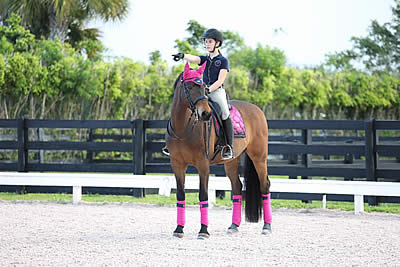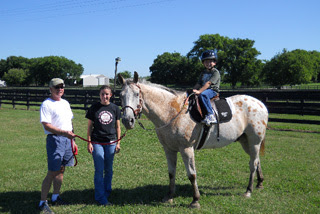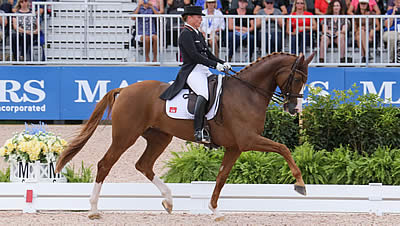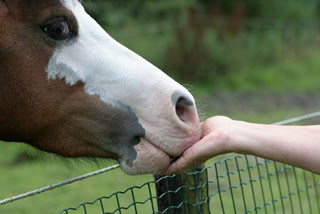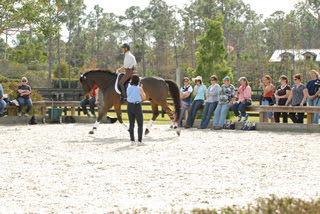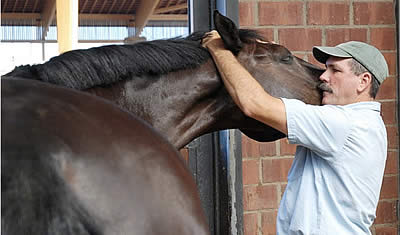Thank you, D4K family, for being patient concerning our upcoming activities. We will keep you posted as decisions are made. In the meantime, stay well and let’s all help each other get through this challenging time.
We have already cancelled the first three TEAM clinics of 2020. I know we must be careful keeping each other safe and healthy, but that many of you are still able to ride your horse in your back yard or are at a stable where you can keep six feet away from all humans at the stable. Best of all we can still hug our horses. One of the parts I’m sad about is that many of you were looking forward to getting some instruction. So I thought I would regularly send out some very simple ideas of things that riders of all levels could check on in their own riding. Nothing deep in theory — just little check-ups that any rider can do that will improve your riding.
- In one way the easiest, but we know bad habits are hard to break and this is a VERY bad habit for many. Keep your head up at all times. Have anyone watch you (they don’t need to know anything about riding). Can you have your head up and your eyes up no matter what you are doing (picking up your reins, transitions, looking at the spot you want to reach in a leg-yield or a half pass)? We know this has a big effect on your upper body and your ability to develop a strong back.
- Keep a soft fist – if your fist is tight your arm will be tight and it will be extremely difficult to keep an elastic arm and to follow the motion of the horse’s neck. Your rein is stabilized by your thumb and top finger and your other fingers should be able to open and close slightly to speak to your horse – to give an aid. Remember the idea of holding a child’s hand? Don’t let the child run out in traffic (with an open hand) but he’ll be screaming if you squish his hand too tightly.
I would love to hear from you with other suggestions I can share with everyone. Those of you who have used my goal sheets know my favorite questions: “What have you worked on all year that you should have fixed by now? Why haven’t you fixed it?” Share with me what that is and go out and fix it.
Stay well and happy riding.
Dressage4Kids | graydressage@gmail.com | dressage4kidsorg.presencehost.net
